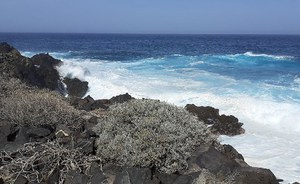Report EEA: Marine messages II-Navigating the course towards clean, healthy and productive seas through implementation of an ecosystem‑based approach
"We still have a chance to restore our marine ecosystems if we act decisively and coherently and strike a sustainable balance between the way we use of seas and our impact on the marine environment" said Hans Bruyninckx, EEA executive director, referred to the current condition of the European seas highlighted by the EEA "Marine Messages II" report.
The precarious state of our seas affects the quality of life, the economy, the availability of raw materials, the production of oxygen and food, a suitable climate and even our free time and health.
Historic and current use of our seas — from the Baltic to the Mediterranean — is taking its toll, resulting in changes in the composition of marine species and habitats to changes in the seas’ overall physical and chemical make-up. Added to these complex problems is climate change, which is worsening the impacts of the other threats. The combined effects of these changes are currently on a path which could cause irreversible damage to marine ecosystems, the EEA report says. There are, however, signs of marine ecosystem recovery in some areas as a result of significant, often decade-long, efforts to reduce certain impacts like those caused by contaminants, eutrophication and overfishing, the report says.
“Our seas and marine ecosystems are suffering as a result of years of severe over-exploitation and neglect. We may soon reach a point of no return, but, as our report confirms, we still have a chance to restore our marine ecosystems if we act decisively and coherently and strike a sustainable balance between the way we use of seas and our impact on the marine environment. In this context, the new EU Biodiversity Strategy to 2030 and other elements of the European Green Deal bring renewed hope that urgent and coherent action for protection and restoration will be underway,” said Hans Bruyninckx, EEA Executive Director.
ISPRA took part in the drafting of the report by proposing the inclusion of the evidence from the community data collection activities ("Data Collection Framework") associated with the Common Fisheries Policy as an additional source of data relating to important elements for environmental protection , often already valued within the Marine Strategy. ISPRA also suggested using the data emerging from the report of the "General Fisheries Commission for the Mediterranean - GFCM" on the status of fish stocks in 2018 as an additional source on the state of Mediterranean stocks.
EU Member States are unlikely to achieve in all their waters by 2020 the ‘good environmental status’ goal of the EU’s Marine Strategy Framework Directive (MSFD), the main EU law for marine environmental protection. Still, significant progress and achievements have been made since the Directive is in place. These conclusions are echoed by the European Commission’s own report, reviewing the current state of implementation of this Directive, which is also published today. .
All the data reported by EU Member States to the Commission is made public for the first time at a dedicated website on WISE-Marine, as well as data products and visualisation tools that provide an overview of the status of the marine environment in the EU.
Europe's seas face uncertain future if urgent, coherent action not taken

